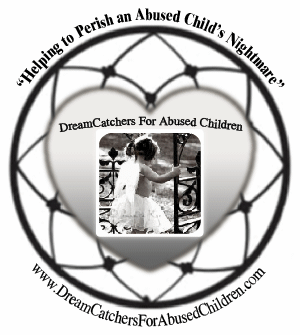How to Maintain a Healthy Mental Health in Your Child
 In recent times, the rise in mental health problems in children is starting to spark concern among health professionals. Although lots of kids grow out of these issues as time goes on, a large number of them go on to develop serious mental health problems later in life.
In recent times, the rise in mental health problems in children is starting to spark concern among health professionals. Although lots of kids grow out of these issues as time goes on, a large number of them go on to develop serious mental health problems later in life.
However, that isn’t to say that nothing can be done to prevent these problems from turning into something more. In fact, as a parent, you can do a lot to encourage healthy habits and a healthy mind from a young age, even if you feel as though you aren’t doing enough. The key to managing your child’s mental health is by following some small but simple tips in their daily lives. These tips are helpful even if your child doesn’t show any signs of such issues, as they will teach them the valuable life skills they need if they ever find themselves slipping into a hole when they are older.
Cook healthy meals
The distinction between mind and body is slowly but surely being diminished, as there have been numerous studies to show that a healthy body can help cultivate a healthy mind. In any case, the start to a healthy lifestyle comes by adjusting your diet to being balanced and rich in vitamins. With children, it can be a challenge to get them to eat healthy foods, and they often think that food cannot taste nice if it is healthy. However, this is another myth that should be debunked, as there are many tasty treats and meals that are full of goodness, but which still prioritize taste. You should start cooking these foods together so that your child can learn the importance of a healthy diet. It is also wise to teach them about which foods are full of vitamins that promote a healthy brain, such as fish, brightly colored fruits, and leafy greens.
Encourage exercise
Diet and exercise have always gone hand in hand when it comes to promoting a healthy body, and the mind is no exception. In fact, in many cases exercise has been the savior for people who have struggled with their mental health for some time, due to the chemicals that are released into the brain after exercising. It is likely that you will be encouraging your child to exercise through hobbies and sports, but you can also show them how important it is to go on long walks in nature and to keep up a solid routine. In many cases, exercising means your child will have a better night’s sleep, and that they will be able to use it to work through any difficult emotions and release them when they are stressed.
Encourage their passions
In life, there are many things that make people happy, from their favorite books to participating in a sport. In any case, these memories are often tied to their passion. While it is easy to encourage great grades in your kids, this kind of pressure can lead to them developing problems with anxiety and stress management as they grow up, and will, in fact, worsen their grades. Studies have shown that having a passion alongside academic work can bolster commitment and attention in the classroom, all while giving your child something to aspire to. Such passions will increase their happiness each day if it is something they truly love, and will also give them an outlet for their emotions whenever they start to feel down.
Listen to them
This point may seem like an obvious one, but you will be surprised at how little time parents can make to listen to their child after a long day working. Although you will be tired and in need of relaxation when you come home from work, you also need to be there for your child if they have had a difficult day at work. This is because it enables your child to develop a voice and express themselves whenever they don’t feel good. This is crucial to helping them talk about difficult times, rather than forcing them to hold negative emotions inside. Taking a few minutes each day to ask how their day was, and ask them if there’s anything they need to talk about will let them know they can always come to you if they have a problem and that they are never alone.
Build their confidence
As your child grows, it is likely that some of the hormonal changes happening in their body will start to affect how they see themselves. With eating disorders and Body Dysmorphia developing during this age, it is vital that you are not only there for your child during these times, but that you build them up from their lowest point. It may seem hard for you to understand what is going on in their head, as they don’t see what you see each day, but they are likely as confused. Luckily, you can make a real difference by complimenting them often, and by reminding them each day that their worth doesn’t lie in how they look. This also applied to any confidence they find faltering in their passions, as they could start to feel as though they won’t make it anywhere with what they love. Taking an avid interest and showing your pride in their work is something they will truly start to appreciate as time goes on
Promote a sleep routine
A big part of maintaining a healthy mind is getting enough sleep. As your child grows, they might be finding it harder to have a restful sleep each night, which can lead to worse mood swings and higher levels of irritability. Although encouraging such a routine can be tricky, there are many ways in which you can help. This includes making sure they get enough exercise to wear their body out, as well as setting certain times in which they must be in bed by and switch off from their mobile devices that could be keeping them awake.
Create a safe space
The key to helping your child sleep is by making their room as safe a space as possible, where they feel as though they can relax from the moment they step through their bedroom door. The best thing about creating such a space is that your child can choose what they want in their room that makes them feel safe. This could be anywhere from their favorite toys, a night light, or weighted blankets which feel like a perpetual hug. In fact, you should consider bringing herbal remedies into their room as a way of helping them sleep. For example, rubbing lavender oil on their pillow is an ancient but effective sleep remedy, and giving a glass of warm milk before bed will help them feel sleepy. As they grow older, you can start to bring plush cushions and candles into their room so that they are surrounded by a glowing warmth.
Don’t let conflict affect them
One of the biggest triggers to ill mental health is traumatic childhood events that children find it hard to banish from their memories. While conflicts and disagreements are common in any home, they become detrimental when violence and aggression are involved. Not only this, but divorce is becoming more common; while this is often the best option, it can lead to some families being torn apart. In cases like these, you should try and keep arguing to a minimum, and you should try to amicably part ways if this is possible. Not only this, but you should make the process as quick as possible by hiring a trusted Legal Separation Lawyer, as then you can start to rebuild new homes for your children where they can flourish rather than fall. After this has happened, you can consider bringing a therapist into your child’s life, as they will need an outlet for the hardship that has affected them. Having such a valuable resource on hand will enable your child to open up and learn skills that they can take through life to equip them in dealing with difficult life events.
Lead by example
First and foremost, your children will look to you from a young age to see how you deal with hard times and new challenges. Although there will be days where you struggle with your own mental health, your child will pick up on how you deal with this, even when you don’t think they are. This is why it’s important to lead by example. This means letting your child know that while it is hard, it is more than acceptable to have bad days. However, you should also be careful about what you discuss with your child, as this may be a lot for them to deal with at such a young age. Talking to those around you, remaining positive on bad days, and having a bank of useful techniques to rely on are all skills your child will take from you as they grow.




















![Validate my RSS feed [Valid RSS]](http://dreamcatchersforabusedchildren.com/wp-content/uploads/2009/10/valid-rss.png)












